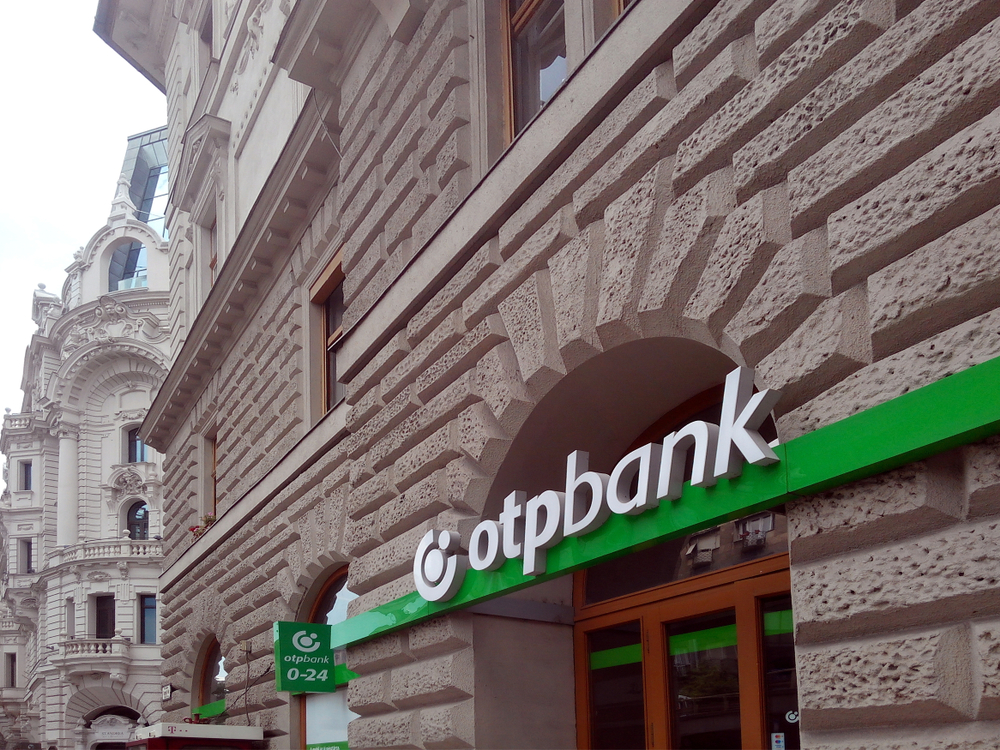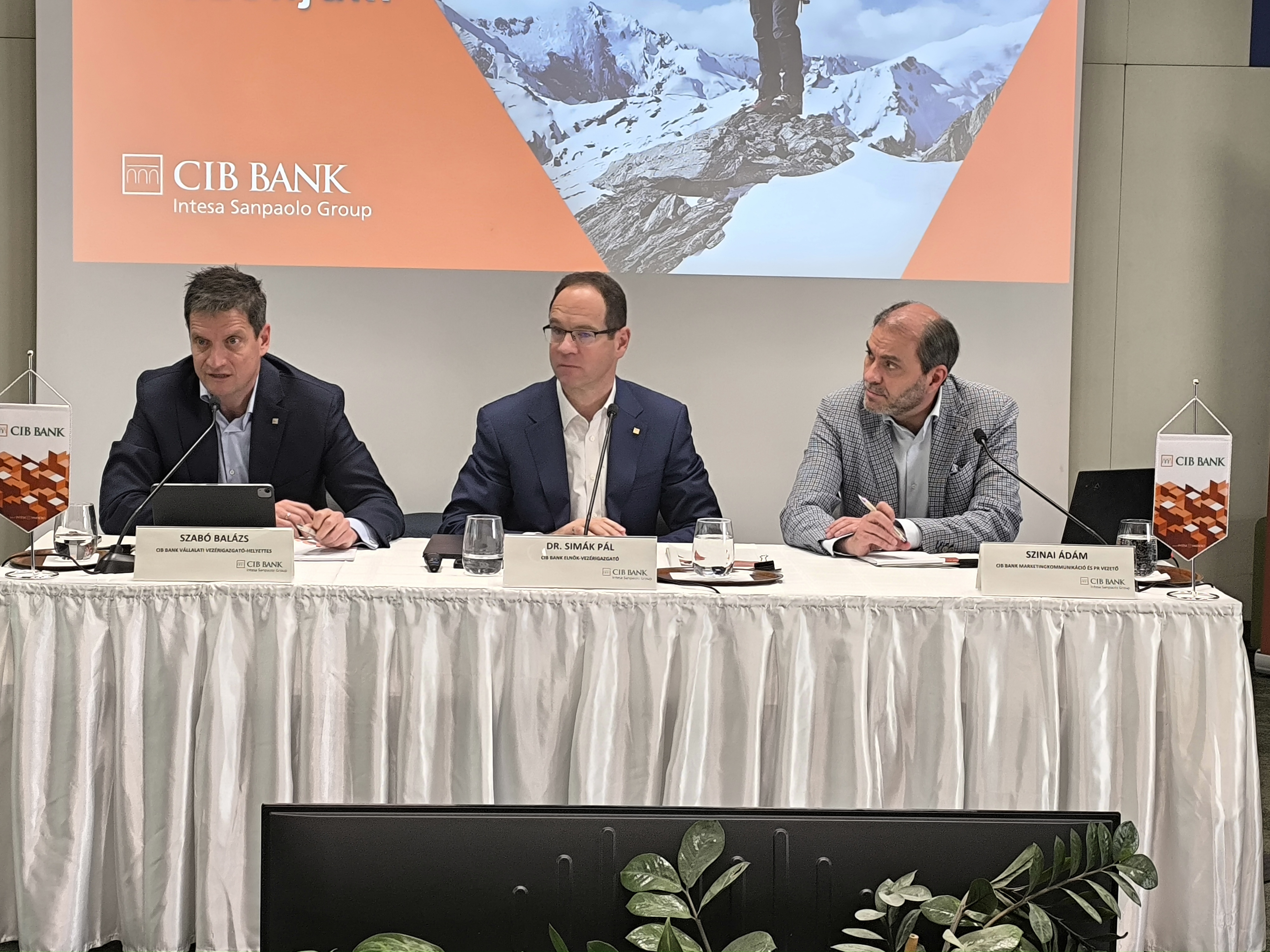OTP Bank Books Q1 Profit of HUF 194.8 bln

Image by Adriana Iacob / Shutterstock.com
OTP Bank, Hungary's biggest commercial lender, had consolidated after-tax profit of HUF 194.8 billion in the first quarter, improving from a HUF 33.4 bln loss in the base period, when impairment on its Russian exposure weighed, an earnings report released ahead of the opening bell on Wednesday shows.
Net interest income rose 30% year-on-year to HUF 312.1 bln. Net revenue from commissions and fees climbed 20% to HUF 103.2 bln.
OTP's risk costs came to HUF 9.2 bln during the quarter, well under HUF 72.9 bln in the base period.
The bank booked HUF 62.9 bln for the windfall profit tax in Q1, the full-year amount. The lender noted that a government decree issued in April modifying the tax would reduce the amount it must pay to HUF 37.4 bln. The HUF 25.5 bln difference will be booked in Q2.
OTP recovered HUF 10.4 bln from an earlier contribution to the National Deposit Insurance Fund (OBA) to cover the clients of failed Russian-owned Sberbank Magyarország.
Diluted earnings per share came to HUF 723 in Q1.
Foreign Units Lift Earnings
Adjusted after-tax profit at OTP's core business in Hungary fell 55% to HUF 43.1 bln. OTP called the result "moderate" and said its net interest margin in Hungary didn't improve in spite of the high underlying interest rate environment.
At the same time, the contribution of OTP's foreign units improved and accounted for 69% of adjusted consolidated after-tax profit.
Adjusted after-tax profit of DSK Group, OTP's Bulgarian unit, climbed 69% to HUF 35.6 bln.
Adjusted after-tax profit of the business in Slovenia jumped 310% to HUF 20.3 bln, boosted by the inclusion of Nova KBM in the consolidation. The acquisition of Nova KBM, closed in February, added HUF 13.5 bln to earnings.
OTP booked adjusted after-tax profit of HUF 18 bln at its business in Russia and HUF 12.6 bln at its unit in Ukraine. OTP's management applies a "going concern" approach to both businesses, but is still considering "all strategic options" in Russia, the lender said, while acknowledging a Russian presidential decree prohibiting the sale of foreign-owned banks.
Russian assets on OTP's consolidated balance sheet accounted for 3.1% of the total at the end of Q1. The impact of deconsolidation and write-down of intragroup exposure under an "unexpected and extremely negative scenario" would cut OTP's CET1 ratio by 69 bp.
Ukrainian assets made up 2.9% of the balance sheet total.
Contribution of Acquisitions Could Be "Substantial"
OTP had total assets of HUF 36.175 tln at the end of March, up 26% from 12 months earlier.
The gross stock of client loans increased 20% to HUF 20.851 tln. The NPL ratio edged down 0.2 percentage points to 3%.
Client deposits rose 23% to HUF 27.390 tln. Household deposits climbed 24% to HUF 15.407 tln.
In a guidance update, OTP said the consolidation of Nova KBM and the pending acquisition of Ipoteka Bank in Uzbekistan, expected to close in Q2, could "substantially contribute" to consolidated after-tax profit. The expected positive effect of one-off items to be booked in relation to the consolidation of Ipoteka Bank might exceed EUR 200 million, it added.
Net interest margin at OTP's core business in Hungary could fall under the 1.91% level in Q4 2022, negatively impacting consolidated net interest margin, while further ECB rate hikes could positively affect net interest margin at several other group members, the lender said.
Loan Book Growth Under 5% in 2023
Deputy-CEO László Bencsik said OTP was loss-making in Hungary in Q1, but the performance of its foreign units improved consolidated results. "It can clearly be said that the foreign subsidiary banks drove group earnings," he added.
Excluding dividends from subsidiaries, OTP's core business in Hungary booked a HUF 36.6 bln loss in Q1, albeit narrowing from a HUF 77.1 bln loss in the base period.
Consolidated ROE, adjusted for one-offs, could be close to last year's level in 2023, while lending stock could rise less than 5%, amid organic and inorganic growth, a stable risk profile, and cost dynamics driven by high inflation, Bencsik said.
Commenting on the domestic market, he said mortgage applications fell 79%. The trend is not expected to change as long as interest rates remain so high, he added. He noted that outlays of personal loans rose slightly.
He said the increase in the mandatory reserve ratio in Hungary from 5% to 10% from April 1 would cut OTP's profit by HUF 5 bln a month.
SUPPORT THE BUDAPEST BUSINESS JOURNAL
Producing journalism that is worthy of the name is a costly business. For 27 years, the publishers, editors and reporters of the Budapest Business Journal have striven to bring you business news that works, information that you can trust, that is factual, accurate and presented without fear or favor.
Newspaper organizations across the globe have struggled to find a business model that allows them to continue to excel, without compromising their ability to perform. Most recently, some have experimented with the idea of involving their most important stakeholders, their readers.
We would like to offer that same opportunity to our readers. We would like to invite you to help us deliver the quality business journalism you require. Hit our Support the BBJ button and you can choose the how much and how often you send us your contributions.








